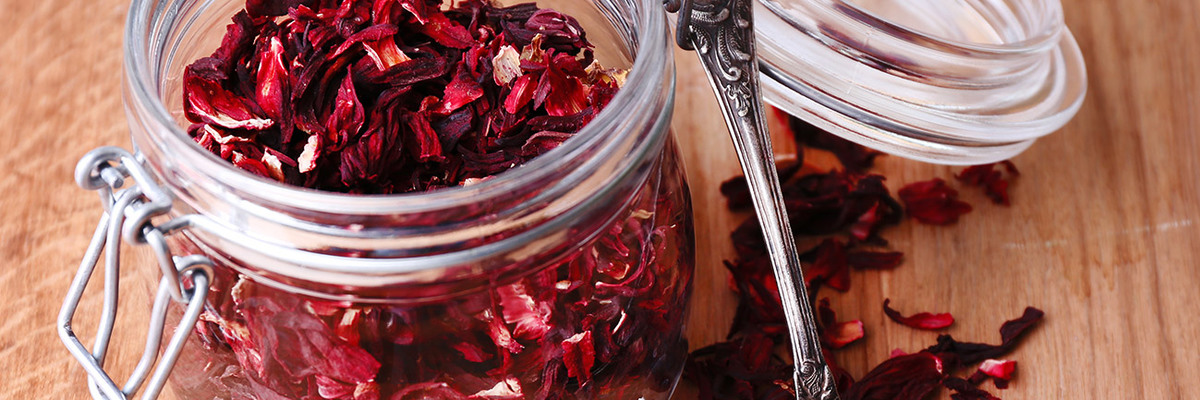Hibiscus Tea Nutrition
Hibiscus tea is extremely good for your health. The flowers, calyx, and fruit are all used for healing purposes; however, only the calyx is used for hibiscus tea. The calyx is red, and sometimes may be confused with the non-medicinal hibiscus.
What is the nutritional value of hibiscus tea? First off, hibiscus tea is loaded with antioxidants such as vitamin A, vitamin C, and zinc. One 100-gram serving of hibiscus contains nearly a third of the vitamin C your body needs in a day. It is also packed with 85% of the vitamin B1 required daily, and almost half of the iron you need.
Hibiscus tea is packed full of the essential fatty acids, omega-3 and omega-6. It is also a good source of dietary fiber, protein, vitamin B2, and copper. Hibiscus tea nutrition also contains other compounds such as malic acid, citric acid, and tartaric acid. The flavonoid glycosides and acidic polysaccharides in hibiscus tea help give it the deep magenta color.
Hibiscus Tea Nutrition Chart
Below is a hibiscus tea nutrition chart. It is a helpful reference tool with all the detailed information of a 100 gram serving size of hibiscus tea:
|
Nutrient |
Amount |
Daily Value |
|
Calories |
37 |
N/A |
|
Total Fat |
0.65g |
1.00% |
|
Total Omega-3 |
18mg |
N/A |
|
Total Omega-6 |
18mg |
N/A |
|
Total Carbohydrates |
7.41g |
2.00% |
|
Fiber |
0.3g |
1.00% |
|
Protein |
0.43g |
1.00% |
|
Vitamin A |
296IU |
6.00% |
|
Vitamin C |
18.4mg |
31.00% |
|
Vitamin B1 (Thiamine) |
1.279mg |
85.00% |
|
Vitamin B2 (Riboflavin) |
0.099mg |
6.00% |
|
Iron |
8.64mg |
48.00% |
|
Copper |
0.073mg |
4.00% |
|
Zinc |
0.012mg |
1.00% |
for more information click here
